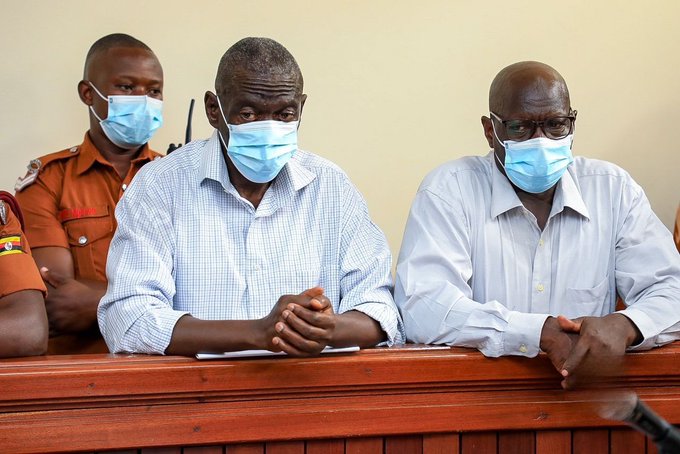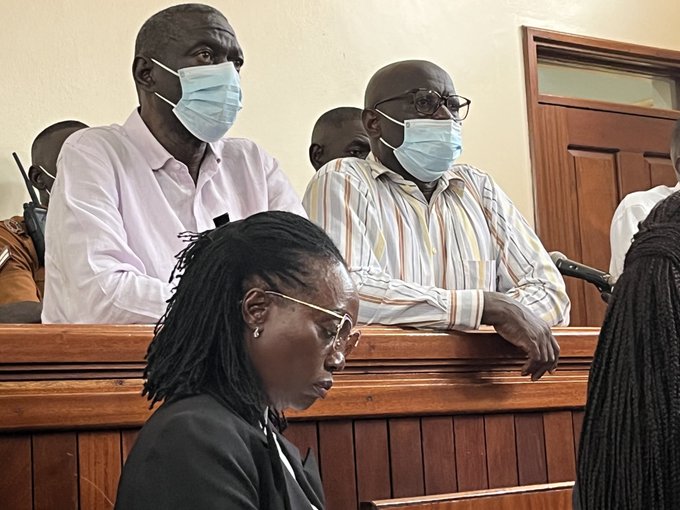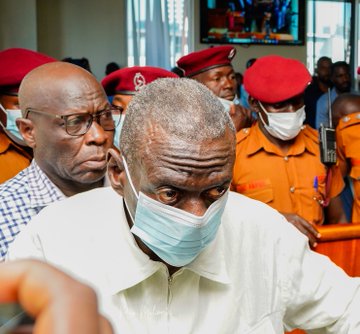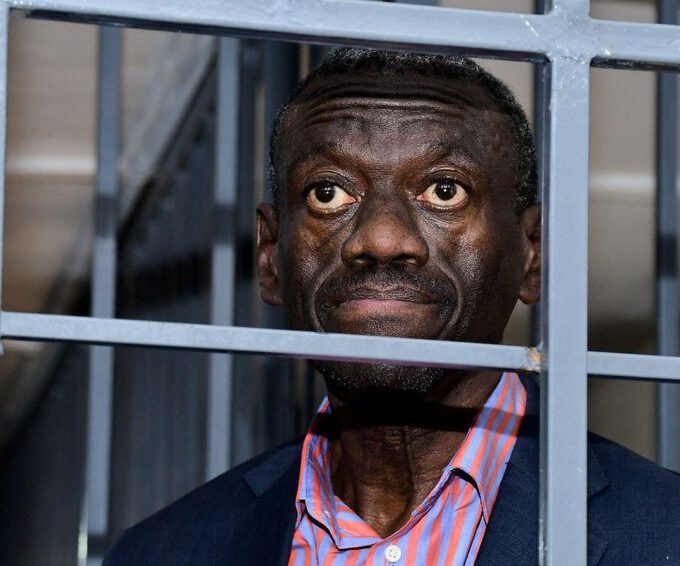In a significant legal development, Dr. Kizza Besigye, Uganda’s veteran opposition figure and four-time presidential contender, has been denied mandatory bail by Nakawa Chief Magistrate Christine Nantege. Instead of granting bail after months of detention without trial, the magistrate opted to refer the matter to the High Court for further consideration. This ruling has reignited debates about constitutional rights, judicial processes, and political freedoms in Uganda.

Background of the Case
Dr. Besigye and his co-accused, Ronald Lutale, have been in custody since late November 2024, facing serious charges including treason and misprision of treason. Initially tried by the General Court Martial (GCM), their case was transferred to the civilian judicial system following a Supreme Court decision that ruled civilians cannot be tried in military courts for capital offenses. The transfer led to fresh charges being filed in Nakawa Chief Magistrates Court in February 2025.
The Bail Application and Constitutional Debate
The defense team filed an application for mandatory bail, citing Article 23(6)(c) of the Ugandan Constitution, which mandates bail for suspects held for over 180 days without committal to trial. Since Besigye and Lutale had been detained for more than 190 days by the time of the application, their lawyers argued that the constitutional right to bail was due.
However, the prosecution contested this interpretation. They argued that the 180-day period should be counted from the date the case was formally filed in the civilian court (February 2025), not from the initial military detention. They further claimed that the charges in the military and civilian courts are distinct, and therefore the constitutional clock had not yet expired.

Magistrate’s Decision and Referral to High Court
Magistrate Nantege declined to grant mandatory bail, emphasizing the complexity of the charges and the prosecution’s readiness to proceed with trial. Instead, she referred the matter to the High Court, signaling that a higher judicial authority should interpret the constitutional provisions and decide on the bail issue.
This decision has been met with frustration by Besigye’s defense team, who view the prolonged detention without trial as a violation of fundamental rights. They have vowed to pursue a revision application to challenge the magistrate’s ruling and assert their clients’ constitutional freedoms.
Wider Implications and Political Context
The case has drawn widespread attention both within Uganda and internationally. Human rights organizations have expressed concern over the prolonged pre-trial detention, viewing it as a potential infringement on the right to liberty and fair trial. Many see the legal proceedings against Besigye as intertwined with Uganda’s political landscape, where opposition figures often face legal challenges perceived as politically motivated.
Besigye, once a close ally of President Yoweri Museveni, has morphed into a leading opposition voice, challenging the government’s authority for over two decades. His arrest and continued detention have sparked debates about the balance between national security and political dissent.

In Parliament, discussions about Besigye’s detention have been restricted, with Deputy Speaker Thomas Tayebwa emphasizing the judiciary’s independence and discouraging parliamentary interference in ongoing legal matters. This stance has drawn criticism from some lawmakers who advocate for political solutions alongside legal ones.
What Lies Ahead?
With the High Court now set to review the bail issue, Uganda stands at a crossroads regarding the enforcement of constitutional rights amid politically sensitive cases. The court’s ruling will likely set a precedent for how prolonged detentions without trial are handled, especially for high-profile political detainees.
Dr. Besigye’s legal team is preparing to intensify their efforts to secure his release on bail, arguing that justice delayed is justice denied. Meanwhile, the government maintains that the rule of law must prevail and that the charges against Besigye are legitimate and serious.
This case highlights the ongoing challenges facing Uganda’s judiciary in balancing constitutional protections, political realities, and the demands of justice. As the nation watches closely, the High Court’s decision will be pivotal in shaping Uganda’s legal and political future.

